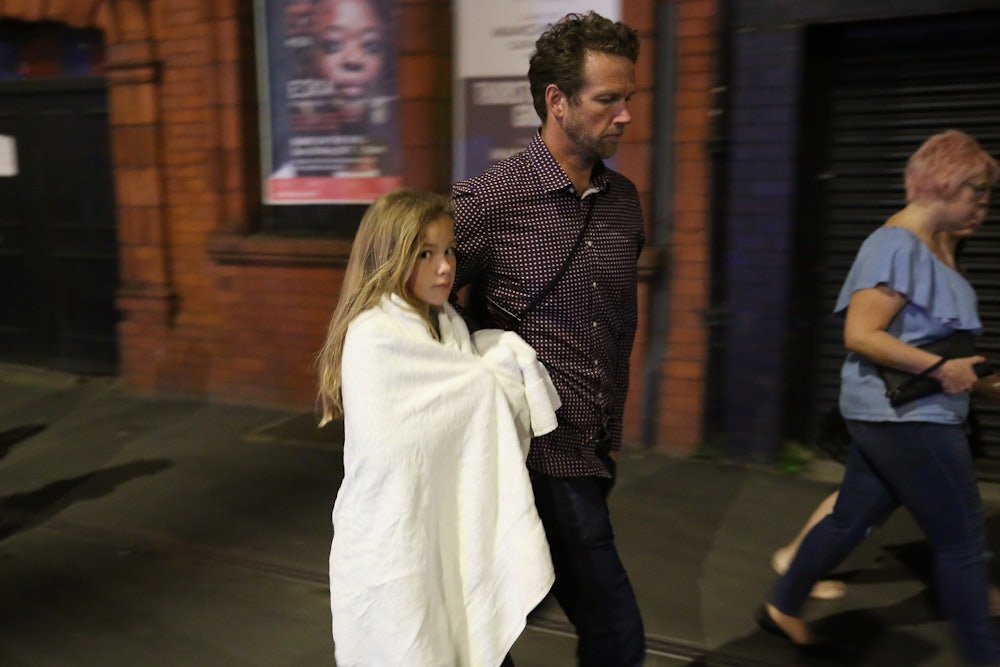Police in Manchester are treating the explosion Monday night at an Ariana Grande show, which left at least 19 dead and injured dozens, as a likely terrorist attack. Although the culprit hasn’t been identified—a suicide bomber is suspected—the attack does have the earmarks of earlier ones in Boston (the bomb may have contained nails) and Paris (because it occurred at a concert).
The American media is now keeping one eye on President Donald Trump’s Twitter account, and for good reason. He has a history of responding rashly and irresponsibly to terrorist attacks. In February, when a man charged a group of soldiers near the Louvre in Paris, Trump tweeted:
A new radical Islamic terrorist has just attacked in Louvre Museum in Paris. Tourists were locked down. France on edge again. GET SMART U.S.
— Donald J. Trump (@realDonaldTrump) February 3, 2017
The only person injured in the Paris attack was the assailant himself, who was shot by a soldier. The Manchester attack is far more devastating, and thus more likely influence Trump’s policy toward terrorism.
Speaking in Saudi Arabia on Sunday, he defined the defeat of terrorism as the overriding goal of his administration. “Above all we must be united in pursuing the one goal that transcends every other consideration,” Trump said. “That goal is to meet history’s great test—to conquer extremism and vanquish the forces of terrorism.” But unlike his campaign speeches, he also made a point of not demonizing Muslims wholesale, calling Islam “one of the world’s great faiths.”
The question is: How will Trump, amid his first foreign trip, respond to the Manchester attack? Will he once again shoot from the hip and blame “radical Islamic terrorism”? Or, under the guidance of aides like national security advisor H.R. McMaster, will the president rise to the occasion and offer solidarity and assurance to an American ally suffering from a heart-rending tragedy? If he somehow manages to do the latter, he must not be praised as “presidential.” No other response would be acceptable from the ostensible leader of the free world.
